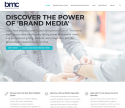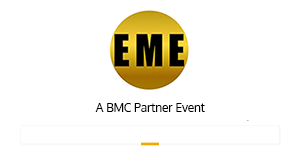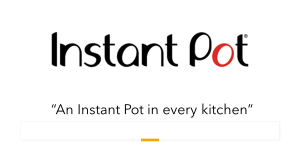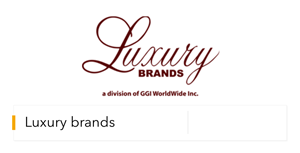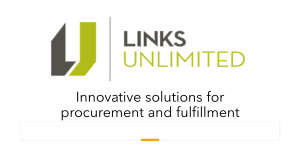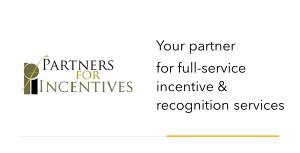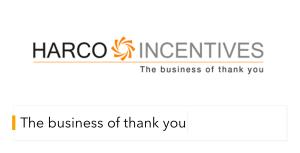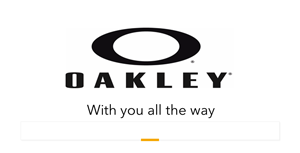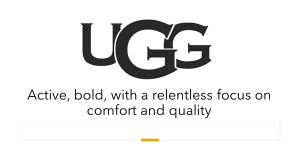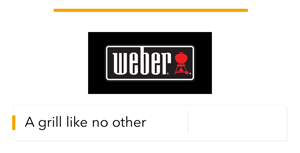The Growing Need for Serious Incentive and Recognition Design Expertise
Despite decades of meaningful research on incentive program design, according to studies by the Incentive Research Foundation, many organizations continue to focus mainly on the gifting process and trust their instincts on program design. Many if not most apply little of the rigor to incentive design that they do to many other decisions in finance, manufacturing, organizational design, etc. With the growing focus on human capital analytics and disclosures, this is bound to change.
By Bruce Bolger
- Make Sure the “Experts” Know How to Address Common Design Flaws
- How to Identify Serious Program Design Expertise
Get ready for a growing new respect for incentive program design as well as a new volley of marketing claims by incentive and recognition companies that they have experts who can provide professional assistance. Here’s some background on why the demand for effective measurement will grow and how to identify companies and people with the expertise needed to inspire people to sustainably optimize performance.
US organizations are estimated to spend tens of billions annually on incentives in sales, marketing, operations, and fundraising incentives, and yet there is probably not one course taught on the subject in any major college or university. While authors such as Alfie Cohn in his No Contest, the Case Against Competition, and Dan Pink in his book Drive have warned against the unintended consequences of many incentive programs, exemplified by what happened at Wells Fargo and Enron, most organizations go on their merry way, letting often completely uninformed management or their vendors design programs that can add up to in some cases to millions of dollars in costs with little return on investment measurement or, worse yet, unintended consequences.
Make Sure the “Experts” Know How to Address Common Design Flaws
What is more, based on many surveys by the Incentive Research Foundation and the Incentive Federation, probably the majority of incentive programs contain one or more of the following flaws:
-
 There is no formal method for measuring return-on-investment or other contributions to organizational goals, or any attempt to correlate outcomes with behaviors.
There is no formal method for measuring return-on-investment or other contributions to organizational goals, or any attempt to correlate outcomes with behaviors. - There is little communication about the program or recognition of the winners in a way that engages the entire enterprise or creates a buzz.
- The program design rewards mostly the top 20% who would have performed anyway, so the rest of the team disengages.
- Employees are rewarded only for achieving goals, rather than the steps necessary to achieve them, resulting in cheating or other efforts to game the system.
- The consumer loyalty program is highly transactional with little connection to the overall brand engagement strategy.
- Goals are based on what management wishes to achieve, rather than what’s realistic.
- The program lacks a holistic “total rewards” approach, leading to a do-this, get-that mentality that promotes bad behaviors or little sustained engagement.
- There is no involvement of the audience in program design so that the incentives do little to address the fundamental reasons for under-performance.
- Insufficient thought is given to how unethical people could game the program.
- There is a lack of coordination between various departments so that internal obstacles end up hindering performance, such as the sales division running an incentive program unable for bureaucratic reasons to coordinate with the training group needed to ensure the sales team has the necessary product or market knowledge.
- The program and its goals are detached from the organization’s mission and values, resulting in rogue behaviors.
- The rewards are essentially cash equivalents that become expected year after year.
- Little thought is given to the reward experience, eliminating a critical way to create lasting emotional impact.
- The company overlooks the story-telling power of brands in reward selection to highlight their own brand’s values.
With the growing focus on human capital analytics, the increased recognition that human capital is an asset rather than a sunk cost, and that people are the last source for value creation at many organizations, the sorry state of ROI measurement in the world of incentives invariably will change. The result will be a burst of claims from solution providers that they can provide top-notch design.
How to Identify Serious Program Design Expertise
Here’s how to substantiate the claims and achieve a return on investment from making the right choice.
Be Willing to Pay for and Measure the ROI Expertise
The old advice, “you get what you pay for” directly applies to the area of professional incentive program design. When properly designed, implemented, and measured, incentive programs can yield significant measurable gains in sales, cost-cutting efforts, innovation, wellness, safety, and more. If improperly designed, the cost in terms of unintended consequences can be high. Companies should be prepared to pay for expertise.
Traditionally, most incentive and recognition companies bury any expertise or program management in the markups for rewards; “breakage” for unredeemed rewards, or in rarer cases points issued. If your due diligence yields a source of expertise you respect from a specific solution provider, the most transparent and therefore measurable solution is to pay a fee for the program design based on a specific goals and ROI, and then upon the issuance of points for the desired behaviors and goals being promoted. The rewards should be treated separately, based on the services provided for their fulfillment and presentation. This way, your organization pays for the actual behaviors and results it’s attempting to achieve, based on actual outcomes and redemptions.
By transparently spelling out fees paid for the incentive program business plan, which is in effect the expertise your organization should be looking for if it wishes to achieve a measurable return on investment, you can determine the value your organization received from that expertise.
Make Sure You Are Informed
Just as management in other fields seeks to develop at least some formal expertise in areas they manage, the need for more ROI-based solutions requires the same of people who manage incentive program budgets. You can access free information on all aspects of incentive program design, gifting, rewards, and recognition on the EEA’s Brand Media Coalition resource site.
For more advanced expertise, the EEA’s EEXAdvisors.com provides numerous resources on human capital management, reporting, and ROI.
To gain insights from experts in all areas of human capital management, marketing, finance, and incentive programs, go the EEA’s YouTube Library, featuring over 30 panel discussions on all aspects of engagement and incentive program design.
Ask the Right Questions
The best way to determine the capabilities of experts is to watch what they say and do during the evaluation meetings.
- Are they trying to sell you something, or are they asking questions to identify your needs?
- If they are asking questions, are they focused on identifying your organization’s needs from a clean-slate perspective, or are they leading you toward a sale of their product or service?
- Do they look for ways to understand and measure impact based on your organization’s goals and values?
- Have they done any research on your organization, its goals, values, and stakeholders?
- Ask how they would address a specific issue either related to your own organization or on one of the commonly overlooked program design oversights outlined above.
- Are they focused on finding out your budget or on identifying the potential return-on-investment to your company?
- Do they mention any relevant research or examples, and, if so, are they careful in their use of that research not to make over-stated or unsubstantiated claims?
- What are some of the key lessons from the training or certifications they have achieved?
Identify the Experts by Name
In the same way advertising and marketing agencies employ thought leaders in various areas of their business, the same should apply in the incentive and recognition fields. Given that clients generally have made almost no demands for effective program design and return-on-investment, many of the players are to be forgiven for lacking serious inside expertise on program design. Many companies will inevitably start with using independent contractors to provide this service—the same process applies to them. Make sure you understand the qualifications and the role that expert will play in the actual management and measurement of the program.
What Is Their Training
Training and certifications are no guarantee of expertise, but they do provide evidence that someone is serious about applying a framework for effective, ROI-based program design. Thankfully, there are multiple sources of serious training in all aspects of incentive programs, some of it available for free or at a very low cost.
The EEA Certified and Advanced Engagement Practitioner designation is based on a five-hour video course included in EEA membership or through two books, Enterprise Engagement for CEOs, and Enterprise Engagement: The Roadmap, which can be purchased online throughout the world. The Certified Engagement Practitioner certification requires a live 45-minute video exam.
Principles of Results Based Incentive Program Design. A comprehensive curriculum on all aspects of the field is available free for members and $75 for non-members. The Incentive Professional designation is based on passing a 98-question exam, which costs $150 for members and $300 for non-members.
The Certified Professional of Incentive Management designation requires at least two years of industry experience and demonstrated involvement in industry activities.
RPI’s four-course sequence teaches professionals the fundamental steps for building a successful recognition program. The courses use the RPI Best Practice Standards®, as well as the latest information and practices to improve organizations around the world through employee recognition. Participants will develop the skills necessary for producing bottom-line results at their organizations.
Loyalty Academy participants may elect to pursue study in one or more of the individual course topics or they may elect to complete the requirements for full certification. Upon completion of the requirements, each loyalty marketing professional will earn formal Certification by the Loyalty Academy.
From workshops to webcasts, ROI Institute offers learning opportunities in all shapes and sizes. Discover a wealth of information and resources on accountability, measurement, and evaluation to support ROI activities and implementation in almost any business activity, including meetings and incentive programs.
Determine Their Experience
When it comes to human behavior of any kind, experience matters. There is no wisdom more effective than that which comes with both success and failure and seeing what actually happens at the end of the programs and beyond. In the evaluation meeting, after letting the expert lead the conversation to identify his or her focus on your organization’s needs, consider asking questions such as:
• Approximately how many programs have they designed and followed through to completion?
• What types of audiences and goals were involved, and what types of results were measured?
• What are some of the key lessons of that experience?
• In what types of industries and or audiences have they had experience and what have they learned?
• What in their minds are the most common flaws they have experienced?
• What in their view are the most common ways to enhance performance without sacrificing future results or other unintended consequences?
For More Information
Bruce Bolger
Founder, the Engagement Agency
914-591-7600, ext. 230
Bolger@TheICEE.org
Education, Certifications, and Information to Activate
A complete learning, certification, and information program and a course syllabus for educators.
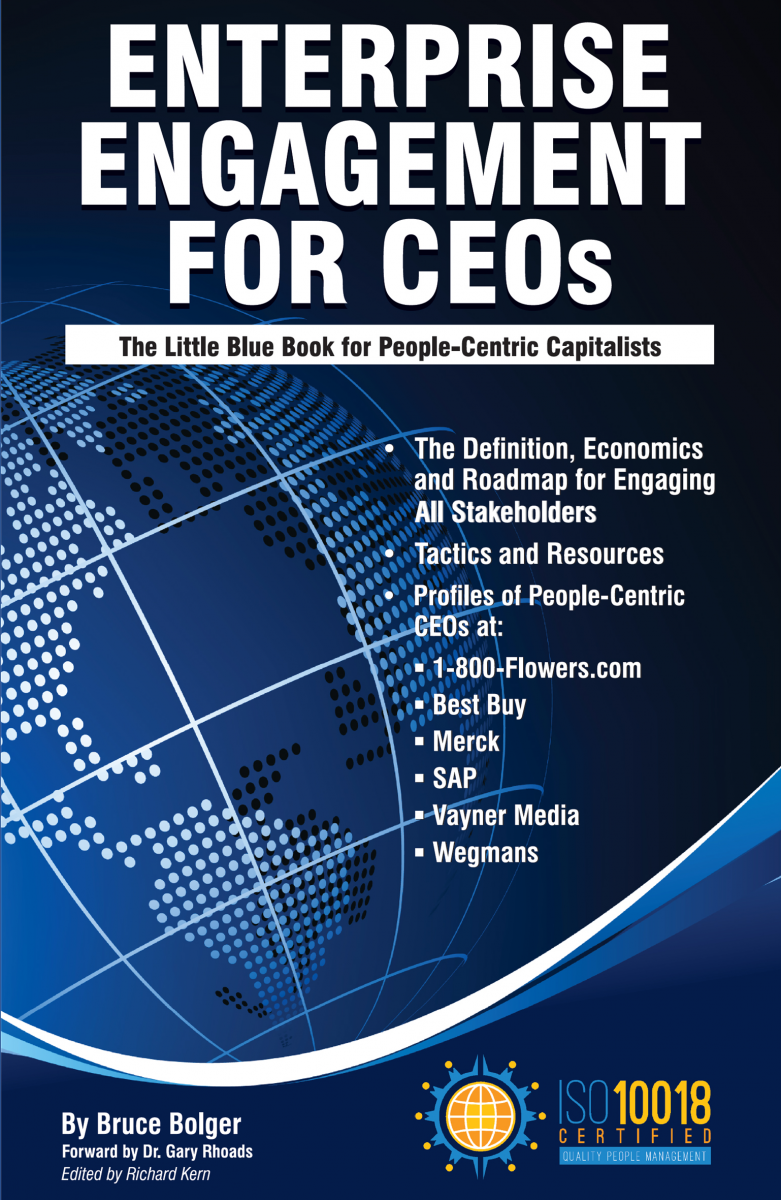

Education, Certifications, and Information to Activate
Brand Media and Enterprise Engagement
A complete learning, certification, and information program and a course syllabus for educators.
Resources: The Brand Media Coalition, the only guide to the story-telling power of brands and where to source them for business, event, promotional gifting, and rewards and recognition. Enterprise Engagement Solution Provider Directory. The only directory of engagement solution providers covering all types of agencies and tactics as well as insights on how to select them.
Communities: The Enterprise Engagement Alliance and Advocate and the Brand Media Coalition free resource centers offering access to the latest research, news, and case studies; discounts, promotions, referrals, and commissions, when appropriate to third-party solution providers from participating coalition solution provider members.
Training and Certification
Enterprise Engagement Alliance Education: Certified Engagement Practitioner; Advanced Engaged Practitioner, and Certified Engagement Solution Provider learning and certification programs on how to implement Stakeholder Capitalism principles at the tactical level.
International Center for Enterprise Engagement: The only training and certification program for ISO 30414 human capital reporting and ISO 10018 quality people management certification.

The EEA offers a complimentary course syllabus for educators.
In Print:
This is the definitive implementation guide to Stakeholder Capitalism, written specifically to provide CEOs and their leadership teams a concise overview of the framework, economics, and implementation process of a CEO-led strategic and systematic approach to achieving success through people. (123 pages, $15.99)

The first and most comprehensive book on Enterprise Engagement and the new ISO 9001 and ISO 10018 quality people management standards. Includes 36 chapters detailing how to better integrate and align engagement efforts across the enterprise. (312 pages, $36.)
Online:
10-minute short course: click here for a 10-minute introduction to Enterprise Engagement and ISO standards from the Coggno.com learning platform.
Services:
• The Engagement Agency at EngagementAgency.net, offering: complete support services for employers, solution providers, and technology firms seeking to profit from formal engagement practices for themselves or their clients, including Brand and Capability audits for solution providers to make sure their products and services are up to date.
• C-Suite Advisory Service—Education of boards, investors, and C-suite executives on the economics, framework, and implementation processes of Enterprise Engagement.
• Speakers Bureau—Select the right speaker on any aspect of engagement for your next event.
• Mergers and Acquisitions. The Engagement Agency’s Mergers and Acquisition group is aware of multiple companies seeking to purchase firms in the engagement field. Contact Michael Mazer in confidence if your company is potentially for sale at 303-320-3777.
Enterprise Engagement Benchmark Tools: The Enterprise Engagement Alliance offers three tools to help organizations profit from Engagement. Click here to access the tools.
• ROI of Engagement Calculator. Use this tool to determine the potential return-on-investment of an engagement strategy.
• EE Benchmark Indicator. Confidentially benchmark your organization’s Enterprise Engagement practices against organizations and best practices.
• Compare Your Company’s Level of Engagement. Quickly compare your organization’s level of engagement to those of others based on the same criteria as the EEA’s Engaged Company Stock Index.
• Gauge Your Personal Level of Engagement. This survey, donated by Horsepower, enables individuals to gauge their own personal levels of engagement.
For more information, contact Bruce Bolger at Bolger@TheEEA.org, 914-591-7600, ext. 230.



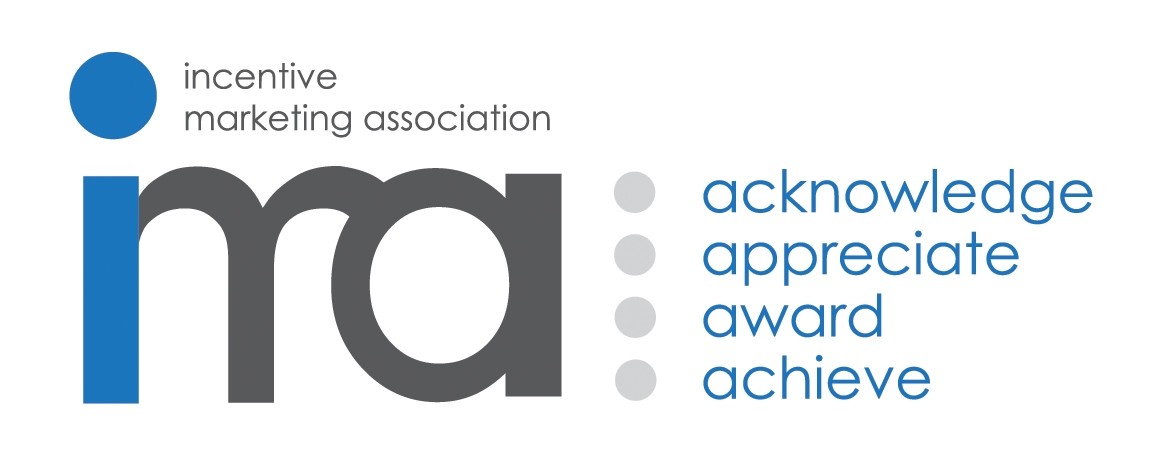
.png)



